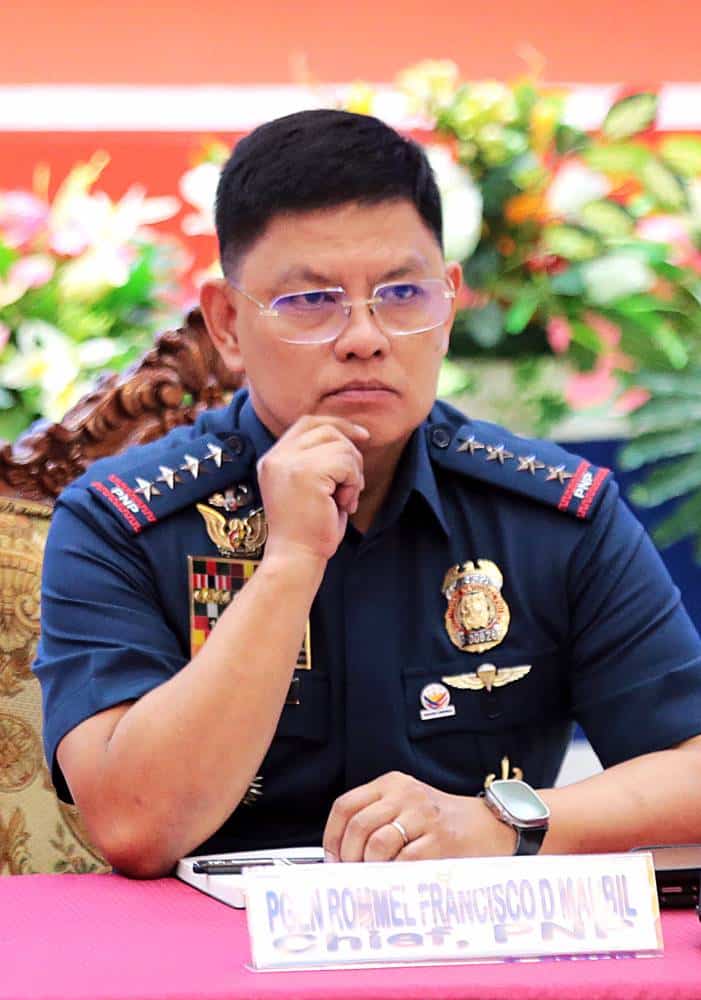PNP ‘sad’ over ‘largest organized crime group’ tag

Philippine National Police Chief Gen. Rommel Francisco Marbil
INQUIRER FILE PHOTO / GRIG C. MONTEGRANDE
MANILA, Philippines — The Philippine National Police (PNP) was saddened by allegations that it is the “largest organized crime group in the country.”
The PNP responded after Lt. Col. Jovie Espenido, former police chief of Albuera, Leyte under the term of former President Rodrigo Duterte, made such a remark. Espenido, who was once praised by Duterte, led an antidrug raid on the house of Mayor Reynaldo Parojinog Jr., where the mayor and 14 other people were killed. Parojinog was in a Duterte “narcolist” of drug lords.
READ: Drug war ‘poster boy’ testifies in House quad-committee
“Such a statement casts a shadow over the integrity and dedication of countless men and women in uniform who have sworn to serve and protect the Filipino people,” the PNP said in a statement on Thursday.
The PNP noted that some of their personnel committed wrongdoings, but it stressed that the majority of cops were not the same.
Article continues after this advertisement“We acknowledge that a small percentage of individuals may stray from the right path, but they do not represent the majority of our dedicated and honorable police officers,” it said.
Article continues after this advertisementDuterte declared the country’s withdrawal from the Rome Statute or the treaty which established the ICC, in March 2018. The withdrawal took effect a year after or in March 2019.
Despite this, the ICC retained jurisdiction over alleged crimes in the Philippines — from November 1, 2011, to March 16, 2019 — while the country was still a state party.
Duterte was the chief architect of the drug which claimed at least 6,000 lives, according to official government data. But human rights watchdogs and the ICC itself estimated the toll to be between 12,000 and 30,000 from 2016 to 2019 alone, as they noted that several of these are extrajudicial killings.
To date, only three policemen were found guilty over drug war killings.
Police officers involved in the 2017 death of Kian delos Santos were found guilty of murder, sentenced to reclusion perpetua — or imprisonment for at least thirty years after which the convict becomes eligible for pardon — but without the eligibility of parole.
READ: 3 policemen guilty of killing Kian delos Santos — court
On the other hand, PNP chief General Rommel Marbil ordered a comprehensive review of the agency’s previous and current drug policies, especially pertaining to human rights in line with the police force’s “recalibrated” approach in its fight against illegal drugs.
“We remain committed to our continuing reforms that strengthen our institution, and this include strict adherence to the President’s call for a holistic approach to combating illegal drugs, with a strong emphasis on the preservation of human life,” the PNP said.
“The PNP, alongside other law enforcement agencies, will be unrelenting in our campaign against illegal drugs, with each agency contributing to a broader effort to address the drug menace,” it added.